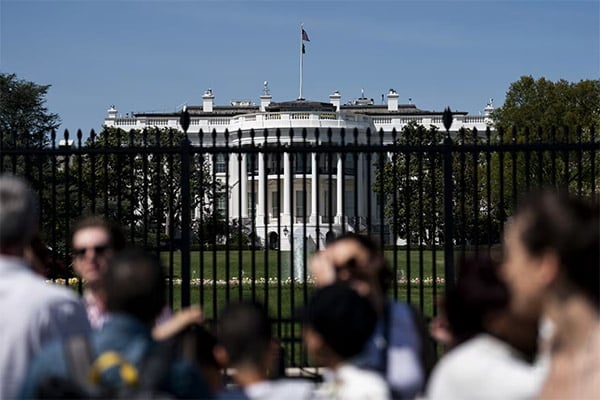
VIENNA, Sept 23, 2024 (BSS/AFP) - Austrians will vote on Sunday with the far right polling narrowly ahead of the conservatives, bringing them within reach of a historic victory.
With far-right parties also gaining ground in other EU countries, it would be the first time ever Austria's Freedom Party (FPOe) comes first in a national election.
But it is uncertain whether they would find partners allowing them to lead the Alpine nation of more than nine million people, even if they have been part of previous governments.
- Why is the far right riding high in the polls? -
Headed by controversial, sharp-tongued politician Herbert Kickl since 2021, the FPOe has managed to build on voter anger and anxieties over inflation, the war in Ukraine and the Covid pandemic, with the far right blaming migration for the country's current economic woes.
"What's particularly important is that Austrians are once again being taken care of. (Now) everyone is being looked after except Austrian citizens," Anna Kollenc, a 36-year-old fitness instructor, told AFP at an FPOe campaign event this month.
With slogans such as "Five good years" and "Courageously try something new", the FPOe currently polls at 27 percent, just ahead of the ruling conservative People's Party (OeVP) on around 25 percent.
While the FPOe has gained since the last national elections in 2019, overcoming a series of corruption scandals, the OeVP, which has been part of government since 1987 and is currently governing in coalition with the Greens, has slumped.
Kickl, 55, has been able to "collect a lot of frustrated voters who want to have a big change in Austrian politics," political analyst Thomas Hofer said, adding the FPOe "did a good job" with its "an anti-establishment positioning".
The party's "black-and-white communication effort played very well in a very emotional time," Hofer said, adding it would be an "earthquake" were the FPOe to win.
- What are the chances of a far-right chancellor? -
However, even if the FPOe wins the most seats, it will almost certainly need to find partners to govern.
Chancellor Karl Nehammer, 51, a former soldier who is campaigning on the promise of "stability for Austria", has repeatedly excluded joining a government led by the radical Kickl.
President Alexander Van der Bellen has also expressed his reluctance to see Kickl lead the country.
Thwarting a Kickl chancellorship could be a three-party coalition -- another first for Austria -- headed by the OeVP, together with the Social Democrats who are polling at just above 20 percent and a third party, probably the liberal NEOS.
But as the economy is struggling, Hofer predicts an "uphill battle" for such a coalition which might even strengthen Kickl, who could further "foster his anti-establishment message" by arguing that he won but was denied the chancellorship.
"It's an earthquake that goes on," Hofer said.
- To what extent does Austria reflect a trend in Europe? -
To claw back voters among the more than 6.3 million people eligible to cast ballots, Nehammer has hardened his tone, particularly on migration, in what has been an overall lacklustre campaign.
For the OeVP, the campaign has been "very hard", according to Hofer, who notes governments across Europe "on the defence" as Russia's invasion of Ukraine stretches through its third year.
But Nehammer has managed to slightly narrow the gap with the FPOe, most recently presenting himself as "crisis manager" during the widespread flooding caused by Storm Boris across central and eastern Europe.
The flooding killed five people in Austria alone, briefly suspending the campaign.
If the OeVP pulls off a surprise and wins the most seats, analysts see a possibility of a coalition with the far right -- which has been in government several times -- as a junior partner.
The first such government in 2000 set off widespread protests and sanctions from Brussels.
But since then, radical parties have been on the rise throughout Europe, forming governments including in Italy and the Netherlands.
But past OeVP-FPOe governments have been short lived. The last one, headed by charismatic then OeVP leader Sebastian Kurz collapsed in the wake of an FPOe corruption scandal in 2019 after just a year and a half in power.